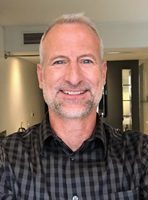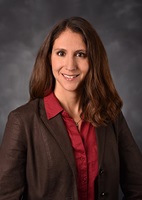ABOUT
Ross Kedl, PhD
Professor of Immunology & Microbiology
Co-Director, Immunology Graduate Program
Beth Tamburini, PhD
Associate Professor of Medicine and Immunology
Co-Director, Immunology Graduate Program
The Immunology Graduate Program at the University of Colorado Anschutz Medical Campus is amongst the most prominent basic Immunology graduate research training Programs in the country. Since its founding in 1989, our Program has conferred over 150 PhD degrees to students from a variety of ethnic and cultural backgrounds. Our curriculum combines formal coursework with mentoring by an engaged faculty in a collaborative environment. The Program draws from the academic strengths of three institutions that contribute significant resources and house our training faculty and students – The CU Denver | Anschutz, National Jewish Health, and the Barbara Davis Center for Childhood Diabetes.
Students in the program receive comprehensive training in diverse areas of immunology and gain the intellectual foundation and technical expertise necessary for performing cutting-edge basic and translational research. Trainees also gain skills in data analysis, technical writing, and oral presentation to further prepare them for making impactful contributions throughout their careers – whether they pursue careers within or outside of academia.

Program Overview
Our Program culminates in a Doctor of Philosophy (PhD) degree awarded through the Graduate School of the University of Colorado Denver | Anschutz Medical Campus. The curriculum includes 30 credit hours of formal course work, three (3) laboratory rotations, an oral comprehensive examination, 30 credit hours of dissertation research, and a final defense of the dissertation. Immunology PhD studies are typically completed in 4 to 6 years, with the student joining a thesis laboratory after three rotations (~1 year) in the program
Additional important aspects of the curriculum Include:
- Regular seminars hosted by nationally and internationally acclaimed Immunologists. Time is scheduled for students to meet these visiting scientists.
- Student-led and laboratory journal clubs that provide additional opportunities for exposure to current topics in Immunological research and for honing critical thinking and presentation skills.
- Lab meetings and regular research presentations further support growth of student organizational and presentation skills, serve as a forum obtain feedback on current research data, and expose students to ongoing current research within the program.
Our Faculty and Research
Our training faculty investigate all aspects of Immunology, including: Cell development and activation | Signaling | Inflammation | Innate immunity | Structural biology | Genomics | Autoimmunity | Transplantation | Infectious disease | Pulmonary immunity | Cancer
Learn more about our graduate faculty and their research.
More than 60 training faculty participate to teach and mentor PhD students in the Immunology Program. These faculty are drawn from fourteen Departments across three local Denver institutions:
University of Colorado School of Medicine
- Department of Immunology & Microbiology
- Department of Anesthesiology
- Department of Biochemistry
- Department of Dermatology
- Division of Allergy/Asthma Clinical Immunology
- Division of Gastroenterology
- Division of Hematology/Blood & Marrow Transplant
- Division of Infectious Disease
- Division of Pulmonary Sciences and Critical Care
- Division of Renal Medicine Disease & Hypertension (Nephrology)
- Division of Rheumatology
- Department of Neurology
- Department of Pediatrics
- Department of Radiation Oncology
- Department of Surgery
Skaggs School of Pharmacy and Pharmaceutical Sciences
- Department of Pharmaceutical Sciences
Barbara Davis Center for Childhood Diabetes
- Research Division
National Jewish Health
- Department of Biomedical Research
- Department of Medicine
- Department of Pediatrics
Our Students

Enrollment data for the Immunology PhD program from 2016-2023 (left) and student demographics for fall 2022 (right).
Students enter the Immunology PhD Training Program (IMMU) by one of three ways:
- applying and being admitted directly through IMMU
- admitted via the umbrella Biomedical Sciences (BSP) or
- transfer from the Medical Scientist Training (MSTP) for their thesis work.
Program Statistics
Throughout the Admissions and Training process, our Program faculty strive to select and support a student population that is inclusive and diverse. The average time to degree for students entering the program has been 5.2 years. Over 150 PhD degrees have been awarded through the program since its inception in 1989.
Student Opportunities and Outcomes
Recent graduates from the Program obtained academic postdoctoral positions at institutions including: Cincinnati Children’s, Emory University, Harvard University/Broad Institute/Brigham & Women’s, Institut Pasteur, National Cancer Institute, Oregon Health & Science University, Stanford University, Mount Sinai New York, UCSF/Gladstone Institutes, University of Massachusetts, University of Melbourne, University of Minnesota, University of New Mexico, University of North Carolina- Chapel Hill, University of Pennsylvania, University of Virginia, University of Washington/Fred Hutchinson Cancer Research Center, Washington University.
Other alumni have pursued research-related positions in biotechnology companies that include: AbbVie, Celgene, Eli Lilly, Fate Therapeutics, Globeimmune, Indica Labs, Meso Scale Discovery, miRagen Therapeutics, Seattle Genetics, Shape Therapeutics, and TCR2 Therapeutics.
Medical non-research positions include: Epidemic Intelligence Service at the CDC, Associate Editor at AAAS, Technical Specialist at Thermo-Fisher, Regulatory Coordinator Duke University. Many of our students have received competitive fellowships from NIH, NSF, and private foundations. Depending on their thesis mentor and topic, students in the Immunology Program are also eligible for support by several T32 Training grants or institutional initiatives such as the University of Colorado RNA Bioscience, Human Immunology and Immunotherapy, and GI & Liver Innate Immune Programs. At least three T32 Training Grants fund current students in the program. The Colorado Clinical Translational Science Institute (CCTSI) has also funded Immunology students and upon graduating our students have the opportunity to earn a certificate emphasizing training in translational settings.
Learn more about our current students and alumni.
Immunology Graduate School Board Committee
Steering Committee Representative/Director - Joey Magno
Student Advisory Committee - MJ Foster, Sarah Stenske, Cammy Manes
Student Recruitment Committee - Emma Trujillo, Courtney Cowan
Student Curriculum Committee - Michael Harbell, Mohammad Mansoor
Immunology Seminar Series Committee - Kimmy Ye, Jessica Beynor
Faculty Recruitment and Engagement – Uma Kantheti
Secretary – Anjelica Miranda
Journal Club Officers – Jeremy Fleck, Valerie Olsen
Event and Retreat Officers – Zoe Bedrosian, Qian Fang
MSTP Liaison – Jessica Beynor
BSP Liaison – Samuel Burciaga
NJH Liaison – Marwan Abushawish
ORE Representatives – Laura Lim, Marina Good
Treasurer – Jessica Prendergast
DEI Representative – Brittany Gomez
Student Support
Students accepted in the PhD program are provided full tuition, health and dental insurance, and a stipend of $41,910 per year for living expenses. Continued support is contingent upon satisfactory academic and research performance by the student. When a student enters a thesis lab, the thesis mentor assumes complete responsibility for the student’s stipend, benefits, tuition, fees, and associated research costs.
Financial support comes from a variety of sources, including the Graduate School, your thesis advisor, training grants (including NIH training grants), graduate student researcher (GSR) fellowships, and NIH traineeships. Many of our students have received competitive fellowships from NIH, NSF, and private foundations. Depending on their thesis mentor and topic, students in the Immunology Program are also eligible for support by several T32 Training grants or institutional initiatives such as the University of Colorado RNA Bioscience, Human Immunology and Immunotherapy, and GI & Liver Innate Immune Programs. At least three T32 Training Grants fund current students in the program. The Colorado Clinical Translational Science Institute (CCTSI) has also funded Immunology students and upon graduating our students have the opportunity to earn a certificate emphasizing training in translational settings.
To better facilitate funding of students, non-resident US citizens are expected to take the steps necessary to gain Colorado residency during their first year. Some examples of what must be done to obtain residency in Colorado include:
- Registering to vote and voting in Colorado elections
- Filing Colorado state income taxes
- Registering your car in Colorado
- Obtaining a driver's license from the State of Colorado
- Designating Colorado as your permanent address
- Establishing and maintaining active bank accounts in Colorado
Students are further encouraged to apply for additional support in the form of pre-doctoral grants which will be added as supplements to their stipend, including National Science Foundation, Ford Foundation, and private and corporate fellowships. In addition, ongoing workshops and mock review panels help facilitate and improve student preparation and submission of competitive applications to NIH for fellowship support.
Students who demonstrate a greater financial need or experience financial difficulties may apply for aid through Financial Aid.


